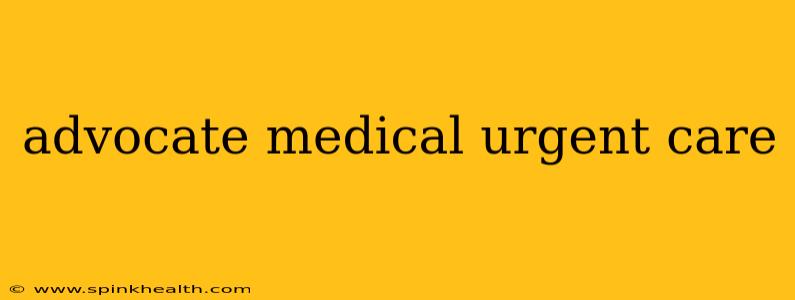When to Advocate for Urgent Medical Care: A Story of Knowing When to Seek Help
It was a Tuesday afternoon, the kind where the sun streamed through my kitchen window, painting golden stripes across the floor. I was humming along to the radio, chopping vegetables for dinner, feeling utterly content. Then, a sharp, stabbing pain shot through my chest. It wasn't the familiar twinge of indigestion; this was different, deeper, more alarming. My initial reaction was denial – it's probably nothing, I told myself. But a nagging voice, a voice of intuition honed over years of witnessing medical emergencies, whispered: seek help. This is where the art of advocating for your urgent medical care begins.
This experience illuminated for me the critical importance of recognizing when a situation demands immediate attention and the even more critical skill of effectively communicating that need to medical professionals. This isn't just about knowing what to advocate for; it's about how to advocate for yourself or your loved one effectively and confidently.
What constitutes a medical emergency needing urgent care?
This is often the first and most crucial question. Knowing the signs can mean the difference between a timely intervention and a potentially worse outcome. Let's explore some common scenarios where urgent care is vital:
1. Sudden, severe pain: Like my chest pain, sudden, intense pain in any area of the body – chest, abdomen, head, or extremities – requires immediate attention. Don't dismiss it; seek evaluation promptly.
2. Difficulty breathing: Shortness of breath, wheezing, or gasping for air are serious symptoms that necessitate urgent care. These could signal a range of conditions, from asthma attacks to pneumonia or heart failure.
3. Severe bleeding: Uncontrollable bleeding, whether from a wound or internal bleeding, is a life-threatening situation demanding immediate medical attention.
4. Changes in mental status: Sudden confusion, disorientation, seizures, or loss of consciousness are critical indicators needing urgent medical evaluation.
5. Severe allergic reaction: Symptoms like swelling of the face, lips, or tongue, hives, difficulty breathing, or dizziness following exposure to an allergen are life-threatening and require immediate intervention.
How do I effectively advocate for urgent medical care?
Advocating effectively is about clear communication and assertive action. It isn't about being demanding; it's about ensuring your concerns are heard and addressed:
1. Be clear and concise: When contacting medical professionals, explain your symptoms clearly and concisely. Focus on the most concerning symptoms first.
2. Don't downplay your symptoms: Avoid minimizing your symptoms. If you're concerned, express that concern directly. Remember, you're the best advocate for your own health.
3. Ask clarifying questions: Don't hesitate to ask questions to understand the recommended course of action. Understanding your diagnosis and treatment plan is crucial.
4. Seek a second opinion if needed: If you feel your concerns are not being adequately addressed, don’t hesitate to seek a second opinion.
5. Keep records: Keep a record of your symptoms, medical appointments, and treatments. This will help you advocate for yourself effectively in the future.
What if my urgent care needs aren't deemed "urgent" by the medical professional?
This can be frustrating and disheartening. However, remember you have the right to express your concerns and request further evaluation if you remain unsatisfied. Respectfully but firmly explain your persistent worries and request a referral to a specialist if necessary.
My personal experience taught me the invaluable lesson of trusting my intuition and advocating for my own health. While my chest pain turned out to be muscular in origin (a very relieved me!), the episode solidified my belief in the importance of recognizing urgent medical needs and advocating for timely care. It’s a lesson we all should learn, a story shared to empower you to prioritize your health and effectively communicate your needs in moments of medical urgency. Your health is your responsibility, and effective advocacy is a vital tool in protecting it.

